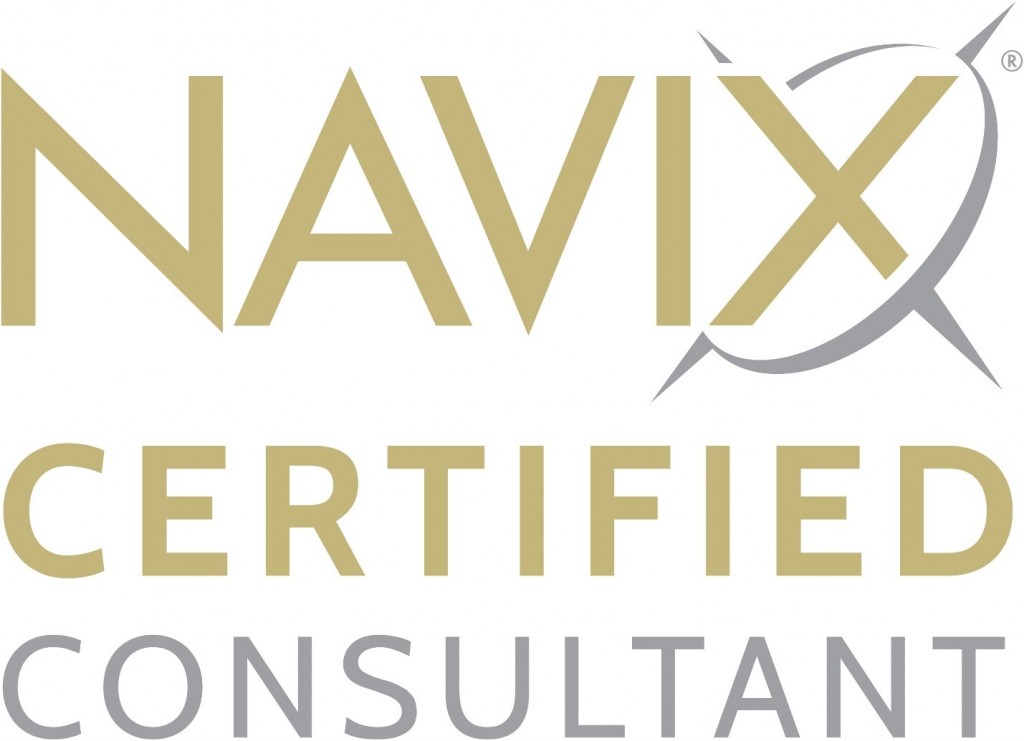
Archive for July, 2019
Why There are Only Four Exit Strategies and the Danger of Not Knowing Yours
By: Patrick Ungashick

To the surprise of many business owners, there are only four ways to exit from a company. One day, you will either pass your company to family members, sell to an outside buyer, sell to an inside buyer, or shut it down. Those are the only four possible exit strategies. Period. They are:
1) Pass to family
2) Sell to Outside Buyer
3) Sell to Inside Buyer
4) Shut it Down
Accurately identifying which of these four exit strategies is yours can make or break your exit success. Here’s why.
But wait – What About Other Exit Strategies?
Before explaining why it’s imperative to know which of the four exit strategy is yours, you might need proof that only these four occur. Let’s start with “I never want to exit”—a common sentiment. Saying you never want to exit means, you intend to hold onto the company until you die (or perhaps get very, very sick.) Death is not a strategy—it’s a timing event. If you still own some or all of your business at your end, one of the four outcomes listed above will always happen: your interest in your company will pass down to family or be sold to an outside buyer or be sold to an inside buyer, or the company will be shut down. If you intend to own your company until death, that’s fine, but you still have to determine what happens to your company at that time.
What about the idea of holding onto your company and letting a management team run it while you sit back and deposit distribution checks? This is not an exit strategy either. Having a competent management team that can run your business without you is excellent. It can give you time to do other things and increase your business’s value. But it’s not an exit strategy. You still own the company. You will yet have to figure out one day what happens to it. You still have significant personal wealth tied up in the business that you will want to access at some point. Delegating leadership to a team may be the right tactic for now, but eventually turnover happens; at some point, you will have to get involved back again.
What about ESOPs? Employee stock ownership plans (ESOPs) are not an exit strategy—they are a tool to help sell a company to an inside buyer—the third strategy. What about going public? That’s a way to sell a business to an outside buyer—the second strategy. What about an intentionally defective grantor trust? That is a tactic to pass the company to your family members—the first strategy. The point is that there are many exit tactics and structures out there, but they are all tools to help achieve one of the four exit strategies.
Why it is Crucial to Know Your Exit Strategy
The primary reason to know which of the four exit strategies likely applies to you and your business is that each strategy requires a different and mutually exclusive path to maximize your results. In other words, to implement one strategy, you will need to make decisions and take actions that are incompatible with the other strategies. If you don’t know which strategy is yours (or if you pick the wrong strategy), then you risk making decisions that undermine or outright block exiting successfully. Here are a few examples:
Business Valuation
If your desired exit strategy is to pass your business down to your family (the first strategy), then you must take steps to establish the lowest defensible valuation for your company to reduce potential gift and estate taxes.
In contrast, if you intend to sell your business to an outside buyer (the second strategy), then you will seek to create the highest potential valuation for your company when pursuing potential buyers. These are entirely incompatible courses. And, if you intend to sell your business to an inside buyer (the third strategy) then in some situations you will want a low valuation (again—think taxes) but in other cases, you will benefit from a higher valuation. Not clearly knowing your chosen exit strategy risks making critically wrong decisions that impact the business’s valuation.
Leadership Succession
If you intend to pass your business down to family ( the first strategy) or sell to an inside buyer (the third strategy) it’s not enough to have a strong leadership team—you must also have a successor CEO trained and ready to go. Otherwise, your exit very possibly will fail because when you (presumably the current CEO) leave the company, you will not have anybody to replace you. Compare this with the second strategy, selling your company to an outside buyer. Most of the time, having a successor CEO when selling your business to an outside buyer is helpful but not necessary, because the buyer has its own senior leadership team. So, which exit strategy you adopt will determine how you need to hire and develop your leadership team.
Taking Money Out of the Company to Reach Financial Freedom
A third example involves taking money out of the company before exit. Too many business owners leave too much cash in their company, presumably to be used at some point to fund future growth. If you intend to pass your business down to family (the first strategy), sell to an inside buyer (the third strategy), or shut the company down at your exit (the fourth strategy), in most situations you should maximize distributions from the company at every opportunity to reach your personal financial freedom. In those three exit strategies, there may be little to no liquidity event at your exit. In contrast, if you intend to sell your business to an outside buyer upon exit (the second strategy) then reinvesting smartly in the company to maximize growth may be the best use of cash. Again, which decision you make should be driven by having a clear knowledge of your likely exit strategy.
Conclusion
There are many additional considerations and advantages associated with knowing your best exit strategy: it simplifies getting ready for exit, reduces confusion and stress, and can saves costs. But the most important reason is to avoid the danger of making the wrong decisions for the wrong reasons. To get started, consider our free ebook and begin with determining your ideal exit strategy.
If you have a quick question coming out of this article or, if you want to discuss your situation in more detail, we can set up a confidential and complimentary phone consultation at your convenience contact Tim 772-221-4499.

Three Reasons to Take the Surplus Cash Out of Your Company
By: Patrick Ungashick

Too many business owners leave more cash in their company than is necessary. Surplus cash inside the company can cause present and future problems. Here’s how.
First, How Much Cash Does Your Company Need?
Owners and their company’s financial leaders need to answer the question of how much cash the company needs. There are no absolute rules, and every company and industry have specific considerations. Also, how much cash the company needs will change with time as the business grows, market conditions evolve, access to credit changes, etc. While in some cases, the cash question may be difficult to answer; ‘difficult’ does not mean impossible. Leadership teams (with help from outside financial advisors, if needed) must review the company’s recent operations and expected future activities, and then discern how much cash the company needs to meet its operational requirements and growth objectives, with room for a conservative reserve. Many companies have not carefully conducted this analysis or may be working from out-of-date assumptions and paradigms. Once the leadership team has identified the target cash needed, owners should distribute any cash surplus unless there are extenuating reasons not to do so.
There are several reasons why companies might sit on too much cash. A commonly heard justification is holding extra cash helps the owner feel “safe.” Cash is king in times of trouble, so having money readily available in the company’s bank account helps many owners sleep at night. Additionally, many business owners treat “debt” as an altogether bad word. Consequently, the company must hold onto extra cash if there is no sufficient line of credit or other facilities when short term cash is needed. Finally, within entrepreneurial-led companies hoarding cash can be a habit left-over from the days when the company was young and fragile, and founder-owners kept excessive funds as a survival tactic.
Despite these issues, keeping surplus cash in the company is often counterproductive to both immediate and long-term objectives. There are three significant reasons why.
1.Cash in the Company is Exposed to Creditors
Ironically, the feeling that keeping cash in the company increases safety is misplaced. Cash held inside your company is exposed to business creditors, whereas cash held personally is not (unless specifically pledged such as under a personal guarantee). Creditors can be known, like your bank, vendor, or landlord, or can be unknown, acting as a disgruntled former employee or disappointed customer who is preparing to bring a claim against the company. The safest place for cash is likely outside your company.
2.Taking Cash Home Reduces Personal Stress
Many business owners have the majority of their net worth tied up in their company and its supporting assets. This concentration may have caused you little stress when you were younger and tolerated the risk, and when the company’s value was modest. Over time, however, the company grows in value while simultaneously, you get older and perhaps become less risk tolerant. Having a large portion of net worth tied up in the company eventually develops into a stressful situation, for both you and often your family members who share in this risk. Distributing excessive cash can reduce an owner’s stress level and help family members find greater peace of mind.
We see this frequently. A recent former client had a net worth of about $15 million, of which $12 million was the estimated value of his company and the balance mostly tied up in real estate. Troubled by his concentration and illiquidity, the client was rushing to sell some or all of his company. Before committing to a sale, we helped the client identify that his company was sitting on about $2 million in surplus cash. After some cajoling, the client agreed to take a one-time distribution for this amount. After taxes, the client had nearly $1.5 million sitting in his personal bank account. His eagerness to sell the company cooled, and he adopted a more disciplined and less emotional approach to his exit plans.
3.Excessive Cash in the Company Causes Problems at Sale
Excessive cash in the company can become a problem when selling the company. Buyers don’t want to purchase a company stripped bare of cash or cash equivalents—the business must have sufficient working capital to support its operations and expected growth. The funds required to support current and planned operations generally will remain in the company at sale, and thus go to the buyer. Any cash not needed for working capital will be a surplus and typically goes with you the seller.
You can foresee the issue—how much working capital needs to be left in the company will be a point of discussion (and likely negotiation) between you and your buyer. To the extent that you have left more cash in the company than it truly warranted, you have made it easier for the buyer to argue that a more considerable amount of money must be left in the business. That’s the value you would lose. If you find yourself in this situation, to avoid losing that cash, you can have an accounting firm review and reconstruct the company’s actual working capital needs—an expensive project in most cases. The alternative and better solution are to avoid the problem in the first place by not leaving surplus cash in the company.
Getting ready for exit often involves taking steps that seem contrary to how you have managed your company, and your preparations must start no later than five years before you intend to exit. Holding onto too much cash ironically can make it more difficult to exit successfully.
If you have a quick question coming out of this article or, if you want to discuss your situation in more detail, we can set up a confidential and complimentary phone consultation at your convenience contact Tim 772-221-4499.

What Game of Thrones Teaches Business Owners About Preparing for Exit

By: Patrick Ungashick
Thoughts from a Game of Throne fan…
Whether you were a die-hard fan of HBO’s Game of Thrones, or you never saw an episode, likely you are aware that the most popular fictional series in television history recently ended in a manner that left millions of fans disappointed. (I am one of those disappointed die-hard fans.) In one crucial way, the Game of Thrones (GOT) ending offers an important insight for business owners getting ready to exit. Here’s how.
To explain the connection between GOT and your business exit, you must understand how sharply fans disliked the program’s ending compared to the entirety of the show. GOT consisted of 73 total episodes that aired over eight seasons. IMDB.com, a leading website for rating movies and television series, ranks the overall GOT program a lofty 9.4 out of 10. A quick review of the individual episode rankings reveals that episodes aired during the first seven seasons earned IMDB scores between 8.5 and 9.5, and several episodes even received a nearly impossible score of 9.9. However, during the eighth and final season, the scores fell dramatically. The highest rated episode from the final season received a pedestrian 7.9. The show’s climactic finale was the absolute all-time lowest scoring GOT episode, bottoming out with a dismal 4.2. How and why the show lost its way is not essential for our purposes. What is relevant is that after seven seasons of record-setting viewership and heaps of critical acclaim, at the very end the show blew it.
At this point, nobody knows how history will treat GOT. Years from now it may be regarded as one of television’s all-time great productions. But, what seems clear is there will always be an asterisk next to its name—a notation that despite all the show’s greatness, what happened (or did not happen) at the end tarnished its unparalleled accomplishments.
This is the lesson for business owners. What you do (or fail to do) at your exit will impact your company and personal legacy to a disproportionately large degree. In GOT’s case, the final few episodes overshadowed nearly ten prior years of artistic and narrative greatness. In your company’s case, if at the very end, your exit somehow fails or falls short, it may cast a dark cloud over your company’s previous years or decades of accomplishments.
An owner’s exit impacts practically every area of one’s business and personal life. Consequently, you cannot afford to have your exit be anything less than a big hit. Consider the following three examples of how a disappointing exit can have a disproportionately large negative impact on you and/or your company:
1.Failing to Reach Financial Security
Likely your hard work and business success have created for you a desirable standard of living that has benefited you and your family for many years. You also likely seek to preserve your financial security for you and your family for the rest of your life after you exit. However, if you fall short of achieving your personal financial goals at exit, you may quickly find yourself deeply disappointed and having to worry about money, perhaps for the rest of your life.
2.Employees are Treated Unfairly
Most business owners are deservedly proud of the careers and jobs they have created for their employees and strive to treat their people fairly. If, after years or decades of providing a stable and respectful workplace, your exit causes valued employees to lose their jobs unexpectedly, or thrusts employees into hostile work culture, that can quickly sour how people feel about your company even after years or decades of good relationships with employees.
3.Customers Left Unhappy
Businesses growth starts by taking care of the customer, and likely your company has done this well for years or decades. But if after you exit customers experience a noticeable decline in the quality of what your company provides, that too can quickly and perhaps permanently taint a previously sterling business brand and reputation. Few business owners will be happy after they exit if they realize that when they left the company, the company’s positive reputation rapidly turned sour.
The End Zone
My first book, Dance in the End Zone, opens with a quote from Elmo Wright, the former professional football wide receiver who is credited with inventing the end zone dance. After his career, Mr. Wright accurately observed: “I’ve accomplished a lot in my life, but what happened in the end zone is what defines my career.” This statement was true for Mr. Wright, and have been reaffirmed by what happened with HBO’s Game of Thrones. It will also define you and your company when you exit. Therefore, it is imperative that business owners start planning their exit as early as possible because what you do in the end zone will define your career, legacy, and post-exit happiness.
If you have a quick question coming out of this article or, if you want to discuss your situation in more detail, we can set up a confidential and complimentary phone consultation at your convenience contact Tim 772-221-4499.

 Tim is a Consultant to Business, Government and Not-for-Profits Organizations specializing in innovative and challenging ways for organizations to survive, to thrive and to build their teams.
Tim is a Consultant to Business, Government and Not-for-Profits Organizations specializing in innovative and challenging ways for organizations to survive, to thrive and to build their teams.